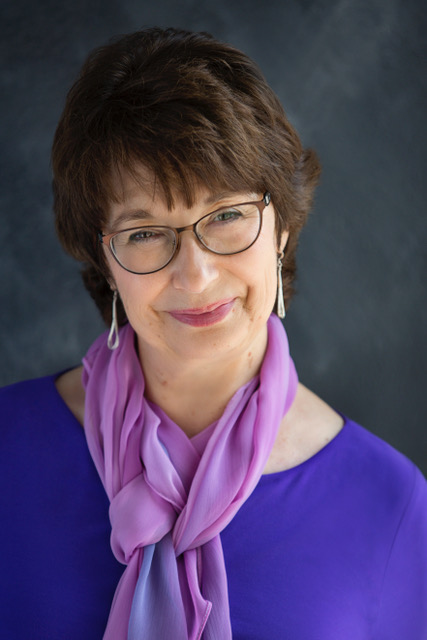To celebrate the latest episode of the Piano Inspires Podcast featuring Barbara Fast, we are sharing an excerpted transcript of her conversation with Pamela Pike. Want to learn more about Fast? Check out the latest installment of the Piano Inspires Podcast. To learn more, visit pianoinspires.com. Listen to our latest episode with Fast on Apple Podcasts, Spotify, YouTube, or our website!

Pamela Pike: I’m going to ask a pointed question, because I think it might be interesting to our listeners. I didn’t mention this in the bio, but you are one of the co-founders of GP3 [Group Piano/Piano Pedagogy Forum], and if I know this story correctly, that idea developed and blossomed while you were a Ph.D. student.
Barbara Fast: Yes.
PP: So talk about the beginnings. Obviously, you saw a need. You saw an opening. But what does it take to take something from an idea in a restaurant, to something that twenty however many years later is just this really important conference that we have?
BF: Well, I credit Michelle Conda, and it was a restaurant in Norman. [I was a] doctoral student. She said, “Barbara, have you ever thought of running a conference?” And really, related to group piano and piano pedagogy, and what was behind it all, we would come to a conference. We were new in our jobs or trying to figure out jobs, and we would all get together over lunch and dinner, and we were just talking about, “well, how are you doing this? How are you doing that?” We were sharing ideas on group teaching and on teaching piano pedagogy, and we said, “We’re spending all our time at a conference talking about this. Why don’t we just run a conference on it?” And then, she and I thought about who else to pull together and who would work well on it. We got a group of four, and that started it all. It was held at CCM for a number of years.
And then I do have to credit, it was a ton of work running a conference, [for] the four of us, [and] putting on this conference every two years. And finally, MTNA got involved. And I’m very aware, had MTNA not gotten involved—particularly Brian Shepard, I worked so closely with him over the years, he’s an amazing organizer—had we not had that connection with MTNA, I don’t think we could have survived. The workload of it, we couldn’t have kept it going. But obviously, the idea [that we] worked on was we would just get together and brainstorm. You know, just brainstorm, who should we bring in? And we felt pretty free to just be crazy about, and not feel like we had to do the same old, same old. And then we would bring in really interesting speakers. So, yeah, that’s been a really fun thing to be involved with.
PP: What did you learn from that experience?
BF: Okay, this is one thing I tell my doctoral students. We had a group of four working together, generating ideas. I think it’s really [about paying] attention. You’ve got to work with people who don’t necessarily all have the same strengths, but who get along. You have to get along. But you do not all want to have the same strengths. You want to have various strengths, because that is what’s going to make the thing work on it. And I’ve noticed, I love working with people and groups, and every partnership I’ve ever had, the reason it’s worked is because we get along really well, but the strengths aren’t necessarily matched, and someone has a strength that someone else does not, and that makes it go.
PP: Yeah, that’s so important, and I’m so glad you brought that up, because again, when you look at the finished product, and you know, you see whether it’s a performance, a collaborative performance, or a collaborative venture, like, you know, GP3, or anything, if you’ve done your job well, it looks effortless. But we all know the work that went into it and learning to navigate different personalities and how we work together and build on one another’s strengths and weaknesses, I think must be important.
BF: Yeah, no. I think that’s a really key thing to making [and] helping things work.
If you enjoyed this excerpt from Piano Inspires Podcast’s latest episode, listen to the entire episode with Barbara Fast on Apple Podcasts, Spotify, YouTube, or our website!
MORE ON BARBARA FAST
- PRESS RELEASE: The Frances Clark Center Announces the 2025 Lifetime Achievement Award Recipients
- WEBINAR: Keep Your Cell Phone Out: Technology that Transforms Traditional Practicing and Teaching with Barbara Fast
- WEBINAR: The Possibilities of Practicing during a Pandemic with Andrew Cooperstock, Barbara Fast, Artina McCain, Spencer Myer, & Nicholas Phillips
- WEBINAR: Town Hall Discussion: Strategies for Online Collegiate Class Piano with Michelle Conda, Diana Dumlavwalla, Barbara Fast, Andrea McAlister, and Stephen Pierce
- PIANO MAGAZINE ARTICLE: Engaging the Brain: Practice Tips from an Interview with Spencer Myer by Barbara Fast and Spencer Myer
- PIANO MAGAZINE ARTICLE: Change It Up!: Interleaved Practice–What It Is, Why It Works by Barbara Fast